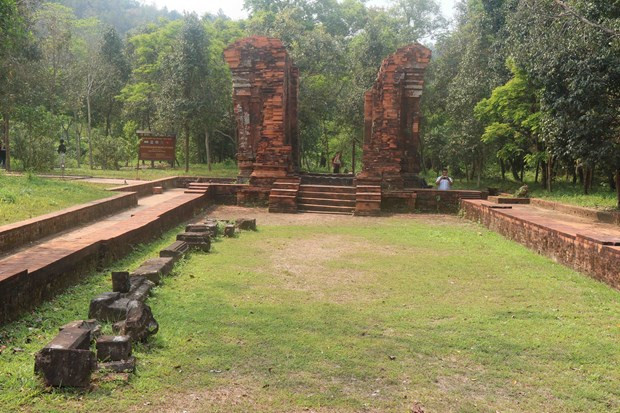
The complex of tower temples, recognised as an UNESCO World Cultural Heritage in 1999, is one of the most renown Champa architectural and sculptural monuments in Vietnam.
Co-organised by the Institute of Archaeology and the management board of the sanctuary, the 2023-2024 excavation and archaeological research covered an area of 220 square metres.
Nguyen Cong Khiet, Deputy Director of the board, said the unearthed area is the foundation of the 12th-century tightly packed earth road, which is 9 metres wide and over 150 metres long.
According to Dr. Nguyen Ngoc Quy, who led the excavation, the cross-section structure of the road includes a roadbed and two brick-lined walls on either side. Not many artifacts were found, with some pottery and terracotta ones possibly dating back to the period from the 10th to the 12th century. These artifacts further support the conclusion that the architectural structure of the road has existed since the 12th century, corresponding to the age of Tower K.
Quy assessed that the results of this excavation campaign affirm the existence of a road leading from the tower into the central area of the My Son Sanctuary in the 12th century, which domestic and international researchers were not aware of before.
With the updated outcomes, it can be noted that this was a sacred road, a path leading the divine, kings, and the Buddhist monks into the sacred space of the sanctuary./.VNA